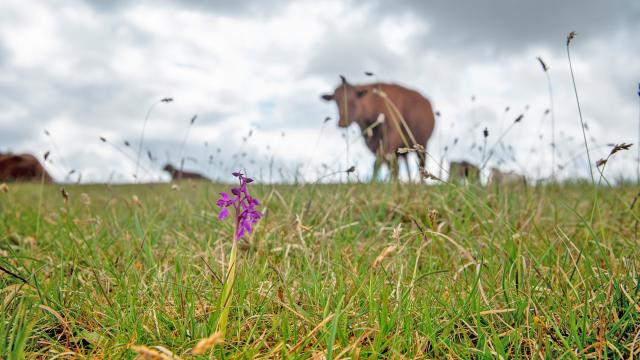Why are core environmental standards important?
The UK’s approach to food trade should reflect our values and standards. Food should be produced in ways that keep us and the animals in the food system healthy and safe. We should reduce our food footprint. And we should support high standard producers – at home and abroad – who can care for the countryside and create the resilient and sustainable farms we need to meet our net zero and nature restoration commitments.
The government has promised to uphold the UK’s food, environmental or animal welfare standards in trade negotiations. A commitment to high standards, green supply chains, and exporting expertise in sustainable land management – as well as high quality food production – is a genuine opportunity for British leadership.
Maintaining UK standards and protecting the environment is important to the public and major food businesses have expressed their support of core environmental standards, signing a statement calling for a ‘bold and forward-looking vision’ for UK trade, that puts the environment and the just transition to a green economy ‘front and centre’. They join farmers’ groups and environmental NGOs in supporting this policy.
However, despite commitment and support, we do not yet have any mechanisms to ensure we can uphold the UK’s food, environmental or animal welfare standards in trade.
Establishing core environmental standards for the way food is produced is an essential part of upholding the UK’s standards and is key to a global transition to sustainable agriculture.
Core standards would set common sustainability thresholds for all food sold in the UK – whether produced at home or imported from abroad. They would ensure that imports are not undermining the environmental standards of UK farming by making sure that comparable standards are required of farmers who want to export to the UK.
Research on designing core environmental standards
To better understand how core environmental standards can be designed in ways that work for sustainable farming at home and abroad, WWF has published a report alongside TULIP and IEEP exploring the priority areas for the development of such standards. The report considers their environmental impact, legal ramifications for design, and how they would work for developing country farmers.
Launched in November 2022, Setting the Standard, a summary of the full technical report, provides a design framework for core environmental standards, based on two globally relevant case studies.
Advisory group
The research on core environmental standards has been supported by a group of stakeholders from a wide range of backgrounds, including researchers, environmental and international development NGOs, farmers’ groups, and certification bodies. The members of the advisory group were:
- Alice Lucas, Fairtrade
- Barnaby Coupe, Wildlife Trusts
- David Baldock, IEEP
- David Henig, ECIPE
- Emily Ludgate, UKTPO
- James Kane, Institute for Government
- Joe Stanley, The Allerston Trust
- Marcus Nyman, RSPB
- Robert Hodgkins, Kaiapoi
- Tom Burston, FFCC
- Vicky Hird, Sustain
- Vicky Robinson, Leaf-UK
